
Sunny daffodils are one of the most recognisable flowers in the world, and have become synonymous with the spring season.
The vibrant yellow, trumpet-shaped blooms are a universal sign of hope and new beginnings. More than just a seasonal favourite, they have a rich history, and have been adopted by many organisations as a representative bloom. Here, we share eight interesting facts about daffodils, from their cultural significance to symbolism.
Daffodils get their name from a Greek myth
Like many other flowers, daffodils get their name from a Greek myth. In this case, the story goes that a nymph called Echo fell in love with Narcissus. She was heartbroken when he turned her down, so Nemesis, the God of Revenge, lured him to a pool. This is where the story varies: some say that he was turned into a flower while admiring his own reflection, others say he fell into the pool and drowned. The flowers that grew along the riverbed were then named after him, and became the narcissus plant family also known as daffodils.
There are so many different species
Of all the countries in the world, the UK is the biggest grower of daffodils. The Romans are thought to have planted the sunny flower in Britain, in memory of those who had fallen in battle. Now, there are more than 30 species and 27,000 cultivated varieties, according to The National Trust.
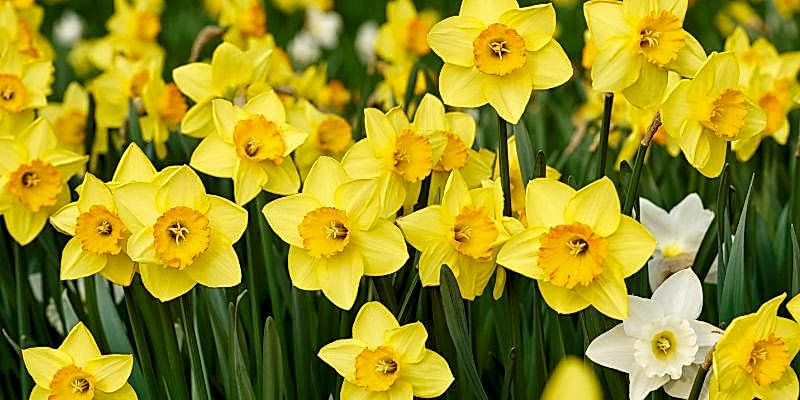
They are rich in symbolism and meaning
While bright cheerful yellow daffodils are the most recognisable, there are a few different varieties. Like with all flowers, every individual colour has its own special symbolism and meaning. In general, daffodils are seen as a sign of new beginnings due to their early spring blooming. They are also often associated with Easter which is marked in early spring.
Yellow daffodils
Vibrant yellow daffodils signify rebirth and joy, marking the beginning of the new season. They are also often associated with the idea of resilience, as they continue to pop up year after year, without much maintenance.
White daffodils
Usually seen in the wild growing next to yellow varieties, like most white flowers, white daffodils symbolise purity, innocence and new beginnings. They are often used in spring weddings and Easter ceremonies.
Pink daffodils
While it’s very rare to find a bright pink bloom, you may come across daffodils with peach or apricot tones. If you do, you’re in luck. They’re a symbol of pride, rarity and affection.
Daffodils are the March birth flower
Blooming in early spring, it’s therefore no surprise that daffodils have become the birth flower of March to mark the beginning of the new season.
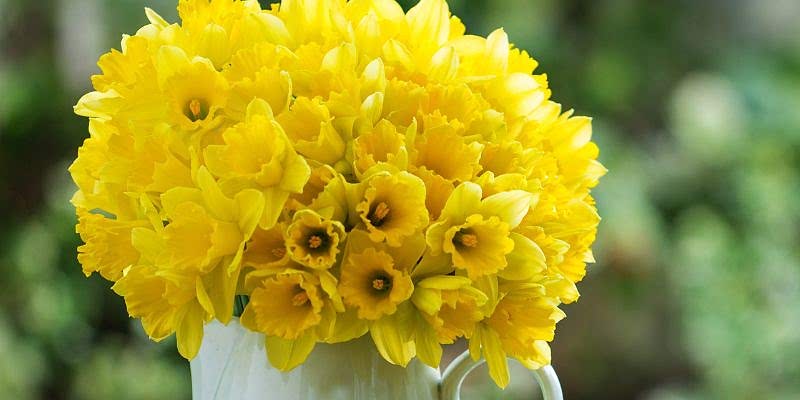
They are given on a couples 10th wedding anniversary
The vibrant flower is also the bloom given to couples on their 10th wedding anniversary, as they celebrate a decade of marriage and begin to enter the next.
They are the National Flower of Wales
Traditionally worn on St David’s Day, a celebration of the patron saint of Wales marked at the beginning of March, daffodils have become a National Emblem for the country. The flower has also become the central symbol of the end of life charity Marie Curie and its annual Great Daffodil Appeal, and has been adopted by the American Cancer Society as a symbol of hope.
Daffodils bloom for decades
As perennial plants, if planted in the right conditions daffodils come back year after year and can thrive without much maintenance. This is why you’ll often see them sprouting up in gardens as the first sign of spring, and why they have been associated with sentiments of resilience and hope.
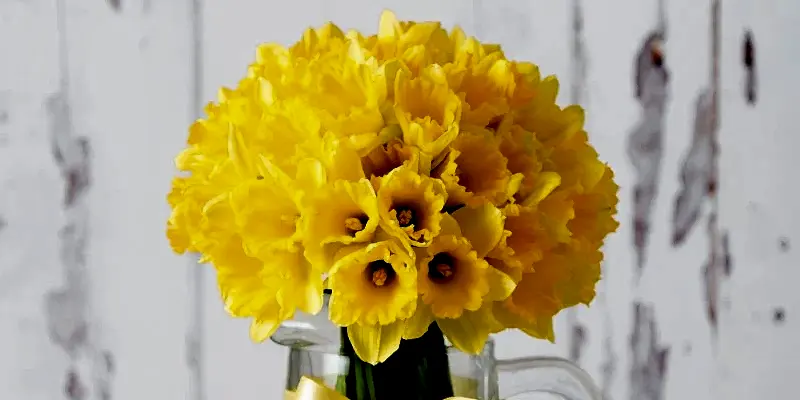
Be careful: daffodils are toxic
Daffodils were once used in medicines, however they are not recommended for modern use. The joyful flowers are actually toxic to humans and animals if ingested, which is down to the flower’s defence mechanism against predators.
Send joy to their door with a bunch of beautiful daffodils from Appleyard London, available with next day delivery nationwide.
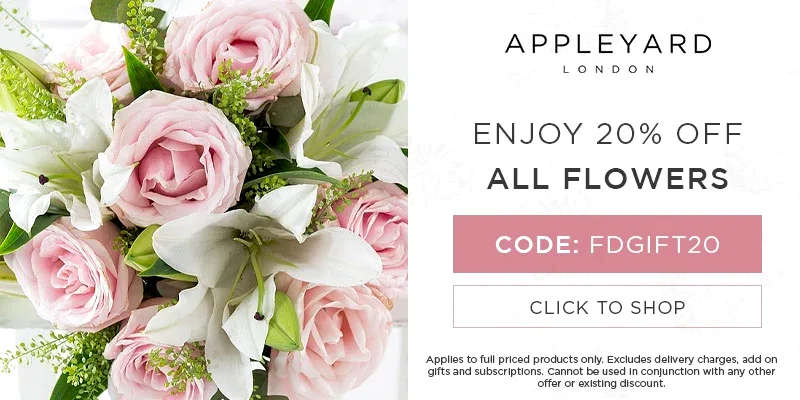

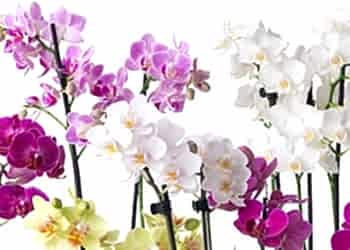
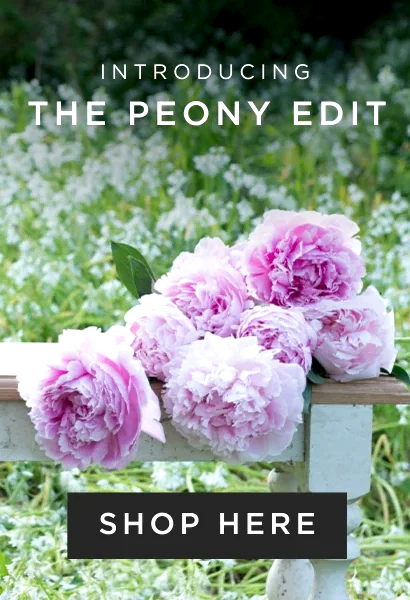
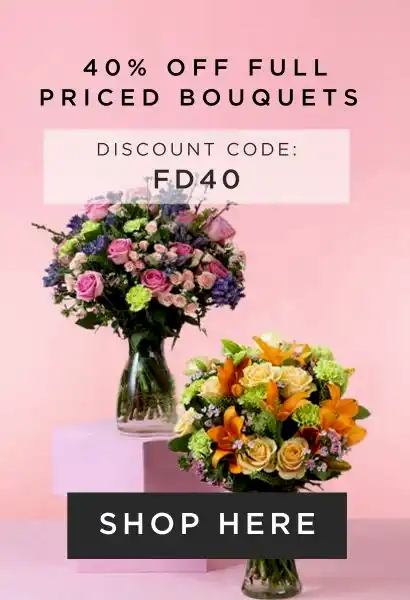


